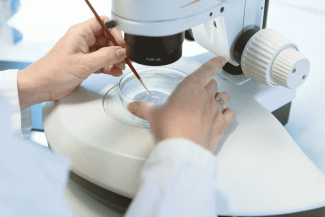Search for a team
GENOVASC team: Cerebral small vessel disease and neurodegeneration
The team aims to derive new structural and functional imaging biomarkers of cerebral small vessel disease, explore shared genetic underpinnings of rare monogenic and multifactorial forms of cerebral small vessel disease, and decipher the intricate...
Team leader(s) Read moreSocialNeuro: Neurophysiology of social cognition
How do brains of social beings make sense of their societies? The Neurophysiology of Social Cognition team is investigating the neural and neuronal mechanisms that enable transformation of social percepts into social concepts. The team aims to...
Team leader(s) Read moreDreamTeam: Sleep, dreams, and cognition
The team aims to discover why we sleep and dream and understand the mechanisms of neurological sleep disorders to treat them better. Both clinical and basic research axes investigate hybrid states between wake and sleep, using neurophysiological...
Team leader(s) Read moreBRIGHT: Brain tumor heterogeneity, immunity and therapy
Investigating brain tumor evolution, mechanisms of resistance to chemotherapy, development of therapeutic strategies to overcome this resistance, and interactions between brain tumors and immune system.
Team leader(s) Read moreNERV: Systems neuroengineering to model and interface brain networks
The NERV team is dedicated to exploring how the brain functions as a complex network. Put simply, they aim to "read" and "understand" brain signals to create tools that could one day help people with brain disorders. Their main goal is to design...
Team leader(s) Read moreMOV'IT: From Movement to Cognition: insights from motor disorders
The team aims to investigate various aspects of motor and cognitive control, particularly inter and intra-subject variability in developmental and acquired disorders and in genetically related animal models.
Team leader(s) Read moreNEURXP: Experimental Neurosurgery
The objective of the team is to characterize the anatomy of the cortical region and the physiology of brain networks involved in motor control. The ultimate goal of this work is to develop new therapies and applications for deep brain stimulation.
Team leader(s) Read moreNeuroGen: Brain development and dysfunction in neurogenetic diseases
Clinical & translational neurosciences Alexandra DURR’s and Sandrine HUMBERT team focus on neurogenetic diseases, spinocerebellar degenerations – SCD (spastic paraplegias and cerebellar ataxias), frontotemporal lobar degenerations – FTLD and...
Team leader(s) Read moreCircuitLab: Cellular Physiology of Cortical Microcircuits
The team "Cellular Physiology of Cortical Microcircuits" aims to study synapses between different types of neurons, leading to specific circuits of the cerebral cortex.
Team leader(s) Read more
